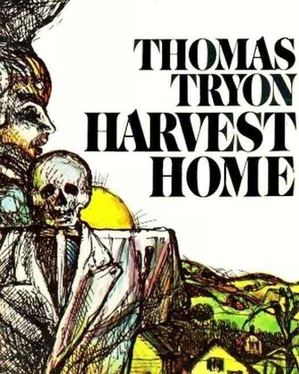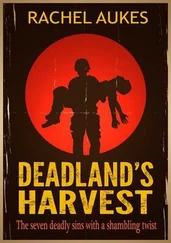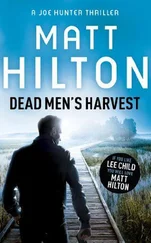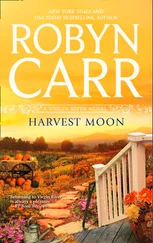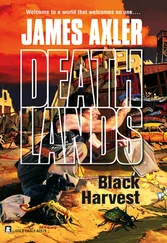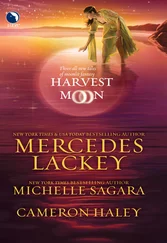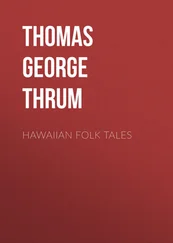Thomas Tryon - Harvest Home
Здесь есть возможность читать онлайн «Thomas Tryon - Harvest Home» весь текст электронной книги совершенно бесплатно (целиком полную версию без сокращений). В некоторых случаях можно слушать аудио, скачать через торрент в формате fb2 и присутствует краткое содержание. Жанр: Ужасы и Мистика, на английском языке. Описание произведения, (предисловие) а так же отзывы посетителей доступны на портале библиотеки ЛибКат.
- Название:Harvest Home
- Автор:
- Жанр:
- Год:неизвестен
- ISBN:нет данных
- Рейтинг книги:5 / 5. Голосов: 1
-
Избранное:Добавить в избранное
- Отзывы:
-
Ваша оценка:
- 100
- 1
- 2
- 3
- 4
- 5
Harvest Home: краткое содержание, описание и аннотация
Предлагаем к чтению аннотацию, описание, краткое содержание или предисловие (зависит от того, что написал сам автор книги «Harvest Home»). Если вы не нашли необходимую информацию о книге — напишите в комментариях, мы постараемся отыскать её.
For Ned and his family, Cornwall Coombe was to be come a place of ultimate horror.
Harvest Home — читать онлайн бесплатно полную книгу (весь текст) целиком
Ниже представлен текст книги, разбитый по страницам. Система сохранения места последней прочитанной страницы, позволяет с удобством читать онлайн бесплатно книгу «Harvest Home», без необходимости каждый раз заново искать на чём Вы остановились. Поставьте закладку, и сможете в любой момент перейти на страницу, на которой закончили чтение.
Интервал:
Закладка:
“Worth- ee ?” A second-story window had flown up and the Widow’s head popped out. “Hitch up the mare and don’t dawdle.” She popped back in. “Oh, dear,” came her disembodied voice, “now where in the nation’s my brooch?”
Worthy kicked down the metal stand and leaned his bike on it, then deposited the newspaper on the steps. I ambled along behind while he went into the stable and led the little mare out. “Hey, old girl, hey, old girl,” he said cheerily as he slipped the bit in her mouth and adroitly maneuvered her into the traces. He brought the harness, hooked it up, and hitched the leads into the shafts, all in a matter of seconds.
“You seem to keep pretty busy,” I observed, admiring his dexterity.
“Yes, sir. Plenty of work hereabouts, if a fellow cares to do it. I’m trying to make enough money to go to agricultural college next fall. There’s still a lot that farmers don’t know about growin’ corn, even if they’d have you think otherwise. Organic, that’s the thing.” He spoke in a buoyant, forthright manner. “I figure by different planting methods you could maybe double the yield of corn. Good land around here, but people don’t take advantage of it. There’s machines that’ll do the work of ten men, with time to spare, for plowing and sowing, harvesting-everything.” He spoke to me confidentially: “I got a tractor.” I gathered from his tone this was a treasure on a par with the Widow’s cow. “It’s a beauty. I can take the whole motor apart and put it back together again, and she works just fine.” He spoke in such a secretive, guarded tone that I decided having a tractor in Cornwall must be a daring enterprise indeed.
“Why don’t the other farmers have them?”
“Not allowed. Machinery’ll put the small farmer out of business, and we’re sort of all in it together. But tractors could be the salvation of the whole town, them and harrows-”
“Shame on you, Worthy! Are you preachin’ sedition, then?” The Widow had appeared in the doorway, waiting while the boy led the horse and buggy to her. “Here’s a bun. Eat. You look thin.”
She had changed her work clothes for an elegant, full-skirted black dress, with a long black alpaca apron over it. Her white hair was carefully brushed and pinned up in a knot, and neatly covered by a snowy cap with a ruffled edge, the strings hanging down either side of her chin. The missing brooch adorned her ample bosom.
“Thanks, Widow.” Worthy picked up the paper and exchanged it for the bun.
“Don’t thank me, thank the mister’s missus-she made ‘em. Drat that newspaper, I don’t know why I spend the money. Nothin’ but rape and murder and higher taxes.” She flung the paper aside and went into the kitchen, reappearing in a moment with her basket and quilt, and a small valise made of worn black leather. She kept a watchful eye until Worthy stowed all this safely under the seat.
“Drat, forgot my shears.” Again she disappeared, returning with her waist girdled by the black ribbon from which hung the silver shears, looking as though they were the companions of her life. She took the flowers from the bucket, wrapped their dripping ends in part of the discarded newspaper, and added these to the other things that had already been loaded. Thus fitted and accoutered, she gave the boy her hand while he aided her ascent into the buggy seat. “Did I remember to turn off the stove? Worthy, run and look.” She turned to me. “See how a good-lookin’ man like yourself flusters an old lady.” She indicated the place beside her, I took it, she picked up the reins and gee’d the mare, turning the buggy in a wide arc so the wheels slid into one of the herb beds. “Hell’s bells, there’s my fennel ruined. Worth- ee ?” She dropped the reins and waited for rescue. Worthy flew down the steps and led the mare from the dooryard onto the drive, smiling good-naturedly. “Think you’d never driven a buggy, Widow,” he said, returning the reins to her. “Maybe you’d better break down and buy yourself a car.”
“What should I do with one of them infernal contraptions? All smoke and noise and gas-eatin’. Better a horse that eats hay. Clem gave me this buggy for a weddin’ present, and I’ll be buried before it is.” She flipped the reins, the mare started forward, but she immediately pulled up. “I was forgettin’. Worthy, Mr. Constantine here’s goin’ to need some help around his place. Bill Johnson’s takin’ himself out to Las Vegas for the gamblin’. Think you might find some time to lend a hand?” She fixed him with a look behind her spectacles.
“What kind of work, Mr. Constantine?” I explained about the skylight in the studio, and the terrace wall. He agreed to come at the first opportunity and see what might be done, then sped off on his paper route.
“He seems like a good kid,” I offered conversationally, grateful for the Widow’s concern in my difficulties.
“Aye, Worthy’s a likely lad. Good as they come and better’n most. He’s cheerful and obligin’ and he’s handy. He’ll make a good farmer one of these days.” I said I thought it ambitious of him to want to go to agriculture school. She did not reply immediately, but sat considering the matter. When she spoke, it was with a thoughtful tone. “He’s only makin’ trouble for himself. Folks won’t take to newfangled ways around here. He’s got his heart set on goin’ away to school, but his father en’t about to let him. Him nor his mother both.”
I expressed surprise that parents would stand in the way of a child’s wanting to better himself. The Widow shook her head. “I s’pose it sounds small to you. But you have to understand folks around here. They’re set in their ways and it’d take one of them atomic bombs to move ‘em. Worthy, now, he’s different. Always has been. I midwifed him and I’ve seen him growin’ up spirited. Needs a bit of cautionin’ now and then, but he’ll do fine. They’re the hope of the world, the young. Your girl, now, Kate. Is she takin’ to our country ways? Does she seem happy?”
I said yes to both questions, and she continued to query me, a catechism that I decided stemmed from her sympathetic interest in Kate’s asthmatic condition. What did she eat? How many hours of sleep did she get a night? Had she ever been allergic before? What kind of exercise, and how much? Was she subject to fits of temperament or melancholy?
“She’s an only child, now, en’t she? Sometimes an only child’ll take on sicknesses a child with brothers and sisters never gets.”
I explained that while we had both hoped desperately for more children, Beth had suffered obstetrical complications and Kate’s delivery had been enormously difficult. I did not tell her, however, that secretly I harbored the fear that my adult case of mumps had left me sterile, and that it might be my fault, not Beth’s, that we’d had no other children.
The Widow’s questions next focused on Beth, an only child herself. And me, she wanted to know, had I brothers and sisters? No, I said, though Greeks often had large families.
“Fertile, yes.” She tilted her head at a quizzical angle, as though sizing me up. Her eyes twinkled as she said, “Beware of Greeks, don’t they say?”
“Only if they come bearing gifts.”
“Which you have-cinnamon buns. Wily folk, the Greeks. Look how they come in the night with a hollow horse to tumble the walls of Ilium.”
“I’m not out to tumble the walls of Cornwall Coombe.”
“Never knew the joys of children myself,” she went on. “Still, every last boy and girl in the village is mine, in a way. I like to watch ‘em from my parlor window, see ‘em rompin’ down the street. I rap my thimble on the pane and wave; they wave back but they keep goin’.” I felt her gruff, crusty air hid the loneliness she must have experienced during the long years of her widowhood. In another moment, she startled me by reaching out and patting my hand. “You folks be happy, hear? That’s all you’ve got, each other, and bein’ happy together.” I was about to murmur acknowledgment when the Widow called briskly, “Mornin’, Tamar. Mornin’, Missy.”
Читать дальшеИнтервал:
Закладка:
Похожие книги на «Harvest Home»
Представляем Вашему вниманию похожие книги на «Harvest Home» списком для выбора. Мы отобрали схожую по названию и смыслу литературу в надежде предоставить читателям больше вариантов отыскать новые, интересные, ещё непрочитанные произведения.
Обсуждение, отзывы о книге «Harvest Home» и просто собственные мнения читателей. Оставьте ваши комментарии, напишите, что Вы думаете о произведении, его смысле или главных героях. Укажите что конкретно понравилось, а что нет, и почему Вы так считаете.
